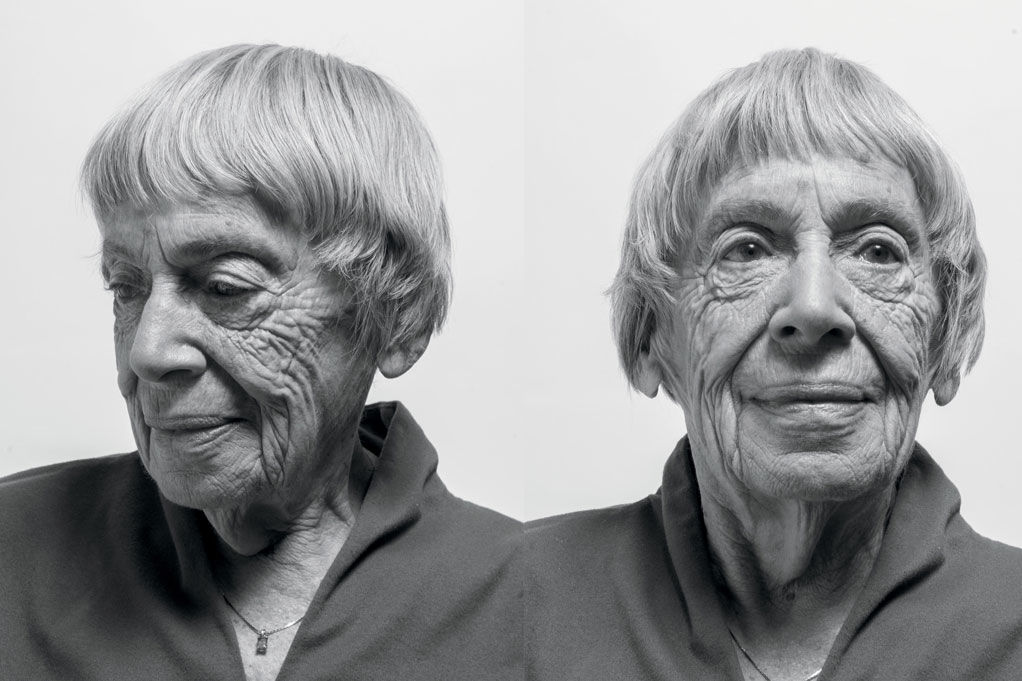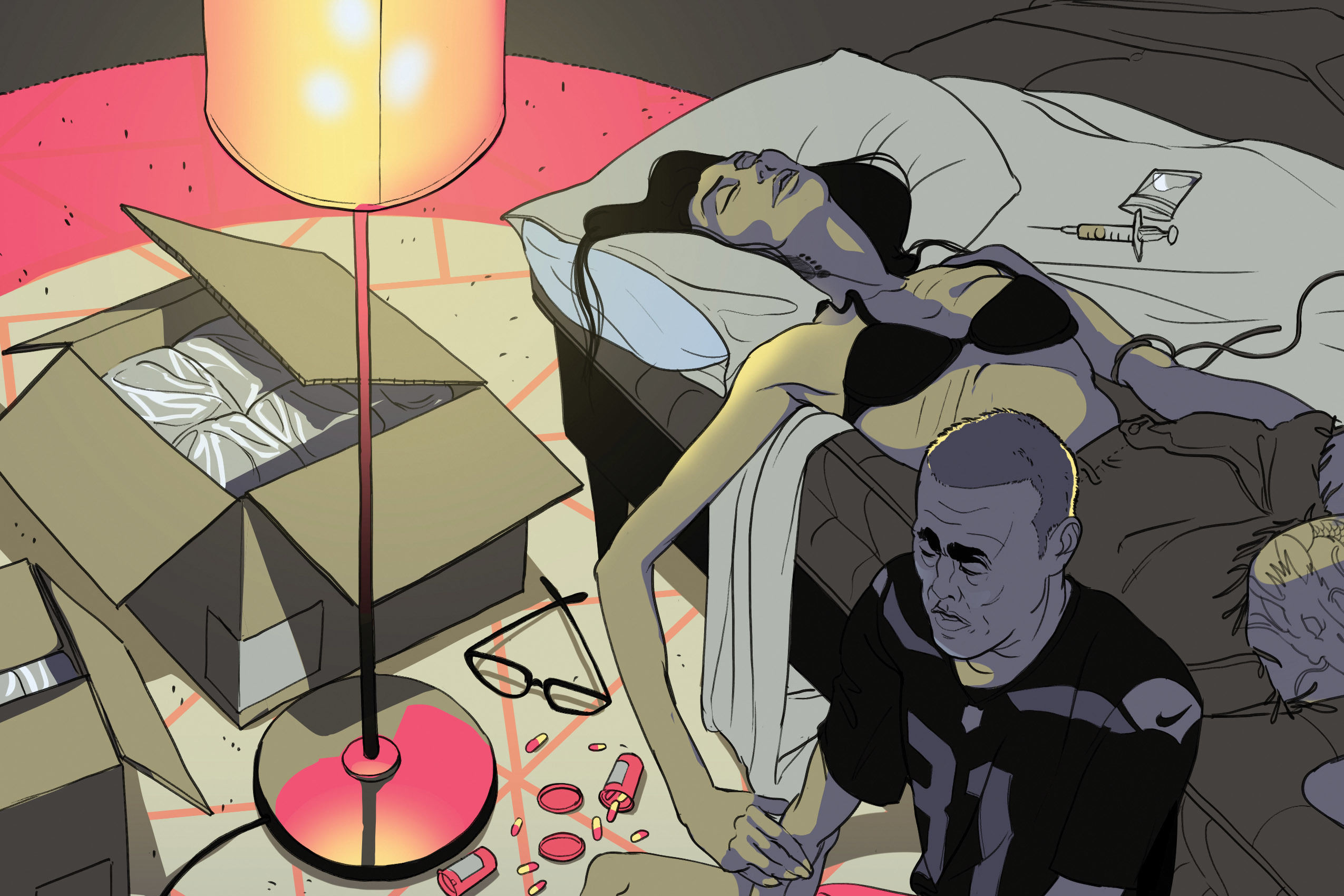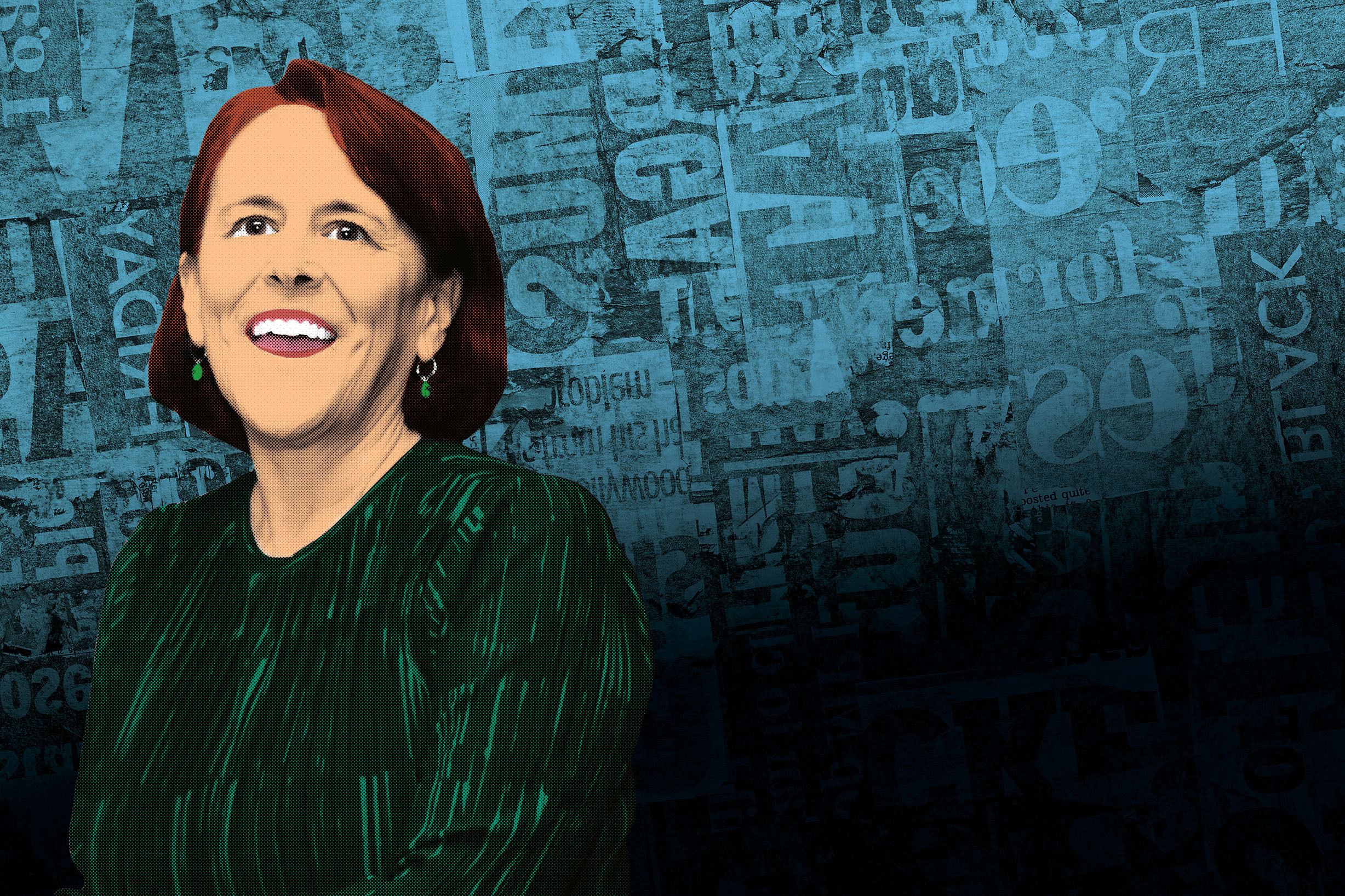
Ursula K. Le Guin Is Breathing Fire to Save American Literature
Midway through The Word for World Is Forest, Ursula K. Le Guin’s 1972 Vietnam allegory, war looms over the planet Athshe.
On one side stand the native Athsheans, diminutive, green-furred humanoids who spend their days dreaming, traipsing peaceably through the woods, and generally just being super mellow. On the other are the militant Earth colonists, come to strip the planet’s forests bare, exploit its inhabitants, and all but elect Richard Nixon as overlord. The Earthlings are the clear antagonists here, but to the forward-thinking colonist Raj Lyubov, the humans’ heartless imperialism isn’t the only factor pushing Athshe into conflict. It’s also this: “We haven’t got any old women.” The “nubile fertile high-breasted young women” the Earth government sent along are nice, Lyubov thinks, but they’d never speak up to restore sanity. “But old women are different from everybody else,” he muses, “they say what they think.”
At age 85—five decades into an almost comically illustrious writing career that has seen her reinvent entire genres, sell millions of books, and win the outright worship of literary peers from Margaret Atwood to Zadie Smith—Le Guin is unquestionably old now, with fogged olive eyes and a stooped (if still bustling) gait. She has also said what she thinks with unusual relish of late. Thus, it came as something of a surprise that Le Guin initially scorned her character’s words when I reminded her of them 43 years later.
“Well, that’s kind of a truism,” she told me, in the snug upstairs den of her longtime Northwest Portland home. Just behind her, two great bookshelves contained row upon row of her 50-plus books in their various editions and translations. Le Guin’s irrepressible cat, Pard, kept up a steady multipaw assault on the closed door. The author seemed to roll the phrase around again in her mind, and the corners of her mouth turned down in distaste at a hint of cliché in her own work. “I’m ashamed of myself for that. Most people think that old women say what they think. Most men are quite convinced of it.”
Yet a moment later, Le Guin came around. “As you get old as a woman, you do lose certain inhibitions,” she said. “It’s just like, ‘Oh, what the hell? I’m an old woman, and who listens to old women?’” As she so often does in conversation, Le Guin paused and began to laugh, in a sort of gentle bemusement with the universe’s curious ways. “On the other hand,” she added with a smile, “it gives you a sort of freedom.”
This freedom was on full, spectacular display last November at the annual National Book Awards ceremony, where Le Guin was to receive the organization’s Medal for Distinguished Contribution to American Letters. The award was a lifetime-achievement honor (with a heavy whiff of apology from the literary establishment, which disregarded her groundbreaking work for many years because it was shelved in the science fiction section), which, to most, would call for a placidly magnanimous acceptance speech. Le Guin, by contrast, stepped up to the podium in her shiny paisley blazer, pulled the microphone down to accommodate her stature, and coolly proceeded to torch her own publishers, the “profiteer” Amazon, and the overcommercialized state of literature in general.
“We need writers who know the difference between production of a market commodity and the practice of an art,” she said. “Developing written material to suit sales strategies in order to maximize corporate profit ... is not quite the same thing as responsible book publishing or authorship.”
At first, the publishers and writers in the audience reacted with shell-shocked silence, as if they had been slapped by their own grandmother. Yet by the end, when she proclaimed that she didn’t want to “watch American literature get sold down the river,” they were roaring. To Le Guin, who told me she’d never been as nervous in her life as she was before her talk, this response was gratifying enough; as the Los Angeles Times (among others) reported, her performance “stole the show.” What she never expected, however, was that the video of her short speech would garner hundreds of thousands of views online, making her, as she likes to put it, “as popular as Maru the cat” for a brief while.
“It seemed like what I said was something a surprising number of people wanted to hear said,” she told me, still pleased.
While Le Guin doesn’t necessarily glory in provocation for its own sake, this episode is very much of a piece with the rest of her career. For more than 50 years now, Le Guin has used incisive critical writing and visionary, psychologically rich fiction to challenge orthodox beliefs—about gender, politics, religion, art—and generally emerged victorious. Far from mellowing her, age has only deepened her willingness to angle after the biggest fish in the pond.
“I think she’s gotten more daring, more feminist, more political,” says the Portland novelist Molly Gloss, a onetime student of Le Guin’s who has been her friend since the 1980s. “She’s more willing to rattle cages. At the National Book Awards, there’s a whole table full of Amazon folks, and she looks right at them and tells them what she thinks of how they’re trying to take over publishing. And then she looks right at her own publishing house and says their policies are making it impossible for libraries to lend e-books. These aren’t the kinds of things you imagine other writers being willing to say out loud.”
In The Word for World Is Forest, Le Guin’s oppressed Athsheans, normally as even-keeled as the attendees of a holistic healing convention, fight back against the human colonists when it becomes clear that their very survival is at stake. Le Guin—who, despite her intellectual pugnacity, is gracious and jovial in person—sees herself in much the same terms.
“You could put it that I’m spoiling for a fight,” she told me. “But on the other hand I’m kind of tired. Turning it into a fight is not my natural wish. But if I’m pushed, I will push back. And I’ve been pushed quite a lot.”
Le Guin’s writing is rarely about Portland itself (and when it is, the place is usually repurposed as a grisly dystopia), yet she is indisputably a Portland writer, perhaps the Portland writer. Born and raised in Berkeley—where, improbably enough, she was a high school classmate of fellow sci-fi luminary Philip K. Dick—Le Guin moved here in 1958 after her husband, the historian Charles A. Le Guin, took a position at Portland State University. Right away, they saw that the city suited them, particularly as a place to raise kids. In short order, they bought the modest gray house below Forest Park where they’ve lived ever since—a homey, unpretentious place originally built from a set of mail-order plans, filled these days with books, world-culture curios, and comfortable, well-used furniture.
During her first years in Portland, when her three children were small, Le Guin wrote at night as the kids slept. “That was tough, but it was certainly worthwhile,” she said, before adding wryly, “I mean, they were good kids.” (Two of her children remain in town today: Caroline, a literature and composition instructor at Portland Community College, and Theo, who runs the Pearl District’s Upfor Gallery.) For years, she churned out stories and novels, without much publishing luck. Though she wrote poetry and “realist” fiction as well, Le Guin found her first success in sci-fi, a genre perfectly suited to both her imagination and her interest in exploring the frontiers of the conscious experience. (Her story “The Direction of the Road,” for example, is told from the perspective of a sentient oak tree, rooted somewhere near McMinnville.)
Beginning in the mid-’60s, Le Guin published with uninterrupted, near-Updikean prodigiousness for decades, motivated by nothing more than a drive she’d felt since childhood to string sentences together. “I just played with words all my life,” she told me. “I kind of went to my room and found out what was going to happen that day.”
What happened were legendary works that radically broadened our conception of what science fiction could do. Her breakthrough 1969 novel, The Left Hand of Darkness, imagines a people who have no fixed gender, brilliantly exploring how this might shape a society. The first book in her legendary high-fantasy Earthsea series, A Wizard of Earthsea, sent readers to wizard school decades before Harry Potter did. (And while we’re keeping track, James Cameron basically appropriated the little green folk from The Word for World Is Forest, made them tall and blue, and called it Avatar.) Her great, transfixing masterpiece, 1974’s The Dispossessed, envisions an anarchist utopian society on a parched, distant planet, so thoroughly real in every infinitesimal detail that the book reads like a work of anthropology—hardly a coincidence, as her father, Alfred Kroeber, was a prominent anthropologist.
To me, and to many others, the miracle of these books lies in the way Le Guin managed to write about enchanted realms and faraway planets without ever straying from the core issues of our own bluish rock. While many fantastical novels and films present starship battles and magic spells as mindless spectacle, Le Guin relentlessly turned sci-fi’s trappings into innovative new avenues to plumb deeper human conflicts. In so doing, she helped hack out the all-important path between science fiction and literary legitimacy that writers like Michael Chabon and David Mitchell walk today—which is why so many big-name current authors credit her with their careers, and more. As the fantasy superstar (and lifelong superfan) Neil Gaiman said as he presented Le Guin’s National Book Foundation medal, “She made me a better writer. And I think much more importantly, she made me a better person who wrote.”
For all the tsunami-size waves Le Guin has made in sci-fi and fantasy, her works in these genres represent only two sides of a writing career cut with as many facets as a gem: poetry collections, children’s books, so-called mainstream literature (for example, the Pulitzer-nominated Searoad, set on the Oregon coast), criticism, translations, essays, and more. Throughout this decades-long flood of words, Le Guin, a self-described “lone wolf,” credits Portland with acting as a sort of anti-New York, providing her with the space she needed to thrive. “Portland has given me a beautiful place to live in and left me largely alone,” she said. “If you want to talk to other writers, it’s a great book town and there are lots of good writers here. But if you don’t want to play the celebrity, this is a really great town. And I never wanted to play the celebrity.”
Now, though, the narrative well may have finally dried up; her last novel was 2008’s Lavinia. Stories, which once flocked to her mind like ducks to bread crumbs, have stopped materializing—which she says is just as well. “I don’t think I have the physical energy to write a novel anymore,” Le Guin said. “It takes real physical input, night and day.” Aside from the odd book foreword, award speech, or blog post about her cat’s adventures around the house, Le Guin’s main regular writing forum is her poetry group. “We’re all women, we’re all in Oregon, and we meet once a month,” she told me. “We’re given an assignment to write a poem of a certain kind, and we can write freely as well. I think it’s really important to all of us.”
Meanwhile, Le Guin has taken on a role she probably never foresaw back in the days when cultural elitists banished her to what she calls “the ghetto of genre”: that of the literary elder stateswoman. Her cache of awards, medals, titles (“Grand Master,” per the Science Fiction Writers of America), and honorary degrees forms a glittering hoard that a dragon could plausibly guard. Speaking from atop this mound of honors gives her words a gravitas that few living writers can match.
Of course, for Le Guin, sounding off about her beliefs isn’t a new phenomenon; in her 1989 nonfiction collection Dancing at the Edge of the World, for example, you’ll find speeches and essays railing against censorship, sexism, snobbery, the “pornography of violence” in culture, “man-made ethics” that attempt to usurp women’s control over their own bodies, and much more. What is new to her is the increased attention these stands command—a phenomenon that leaves her more amused than anything.
“If you live long enough, you sort of get stuck there whether you deserve it or not,” she said, laughing. “I have tried to say the truth insofar as I have any grasp of it. I have tried to be an honest woman. So if I can say anything useful, that would be great.”
Foremost among her concerns these days, it seems, is what Le Guin considers a worrisome literary shift whereby writers—squeezed to make a living in a world that attaches less and less financial value to their profession—view themselves more as brands and “content producers” than artists. “I see so many writers getting pushed around by the sales department, the PR people, and being led to believe that that’s what they do,” she told me. “That’s a terrible waste.”
Artistic resignation in the name of pragmatism—“letting commodity profiteers sell us like deodorant, and tell us what to publish, what to write,” as she put it in her National Book Awards speech—elicits Le Guin’s especial disapproval precisely because she herself spent an entire career bucking what others thought she should write. Yet even now that her own science fiction has been lofted into the modern literary canon, praised by no less an elitist than Yale’s Harold Bloom, Le Guin remains more interested in keeping the good fight going than in declaring victory. “We’ve come a real long way,” she admitted, “and in fact I think
essentially these genre walls are down. But you would not believe how contemptuously reviewers and other people still just dismiss sci-fi. There’s still so much ignorance, and that bugs me.”
Case in point: Just this March, the novelist Kazuo Ishiguro, of Remains of the Day fame, gave an interview to the New York Times about his new book The Buried Giant, set in a mystical post-Arthurian England replete with ogres and dragons. “Will readers follow me into this?” Ishiguro wondered. “Will they understand what I’m trying to do, or will they be prejudiced against the surface elements? Are they going to say this is fantasy?”
“Well, yes, they probably will. Why not?” Le Guin replied in an incendiary blog post—before taking the gloves fully off and savaging both Ishiguro’s attitude (“insulting”) and his book (“painful”). Not surprisingly, this made literary news.
Ishiguro later claimed that Le Guin read too much into his words—he is unashamedly “on the side of the pixies and the dragons,” he said—and Le Guin wrote another post apologizing for her “over-hasty” response. “Because I think he really didn’t mean it that way,” she told me in her den, surrounded by an entire life’s work unapologetically rooted in the fantastical. For a moment, her finely lined face was creased with regret. But then, unable to resist, she added, “He said he has nothing against pixies and dragons, which I find a little patronizing, still, but ...”
She paused, as if searching for something nice to say. “He’s got a dragon in his book,” she said, by way of a compliment. “A very limp one.” Even in retreat, it seemed, Le Guin was still spoiling for a fight.




